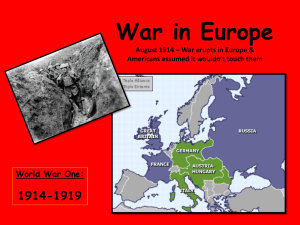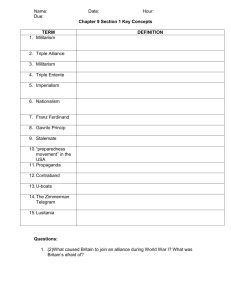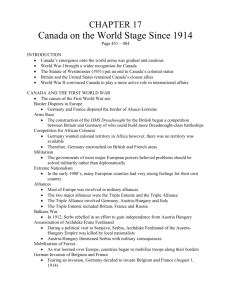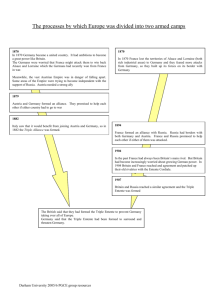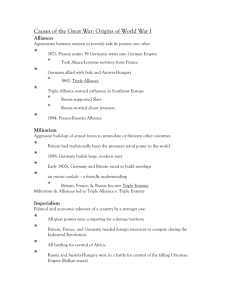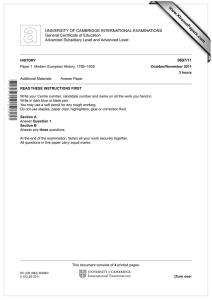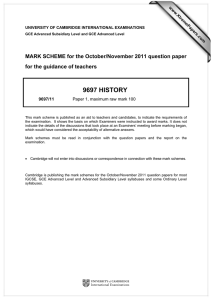How did alliances work – final presentation
advertisement
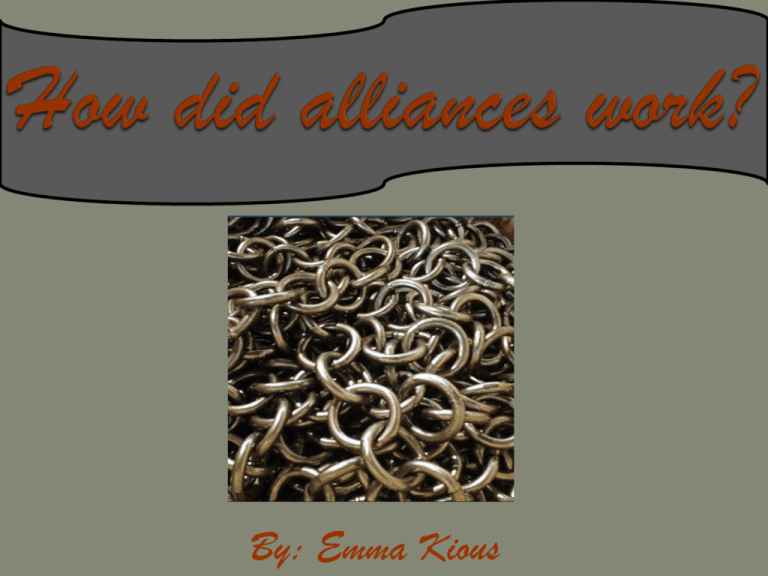
By: Emma Kious There were two different alliances during World War I (or also known as the Great War) • Triple Alliance • Triple Entente Triple alliance Forged in 1882 Included: • Germany • Italy • Austria-Hungary •Germany •Italy •AustriaHungary The Triple alliance triple Entente included: •Germany •Italy • France •Austria• Russia Hungary • Great Britain It was originally called the Dual Entente in 1884, with only France and Russia but in 1907, Great Britain came in and thus was born the Triple entente Colonies often helped their country, creating a lot of advantages For instance, Great Britain, that had a lot of big colonies Colonial empires in 1917 Colonizing countries Britain Britain France France Spain Spain Portugal Portugal Germany Germany Italy Italy Netherlands Netherlands Japan Japan United states United states Ottoman empire Ottoman empire Colonized countries North Atlantic Treaty Organization includes: • • • • • • • United States Canada parts of Western Europe Northern Europe Central Europe Eastern Europe Turkey Common Security and Defence Policy includes • Sweden • Hungary • Slovakia • Austria • Estonia • Lithuania • Bulgaria • Ireland • Latvia Shanghai Cooperation Organization includes : • China • Kazakhstan • Kyrgyzstan • Russia • Tajikistan • Uzbekistan Collective Security Treaty Organization includes : • • • • • • Russia Armenia Belarus Kazakhstan Kyrgyzstan Tajikistan Peace • • • • • • • • and Security Council includes: Zimbabwe Kenya Equatorial Guinea Nigeria Libya Angola Lesotho Djibouti All • • • • • • • Tanzania Cameroon Congo Guinea Ivory Coast Gambia Egypt these countries are either elected to serve for 2 years, or 3 years Union of South American Nations includes: • almost the whole south American countries En.wikipedia.org (1853). List of military alliances - Wikipedia, the free encyclopedia. [online] Retrieved from: http://en.wikipedia.org/wiki/List_of_mili tary_alliances [Accessed: 23 Jan 2013]. Beck, R. et al. (n.d.). World history patterns of interactions. New York: New York edition.
